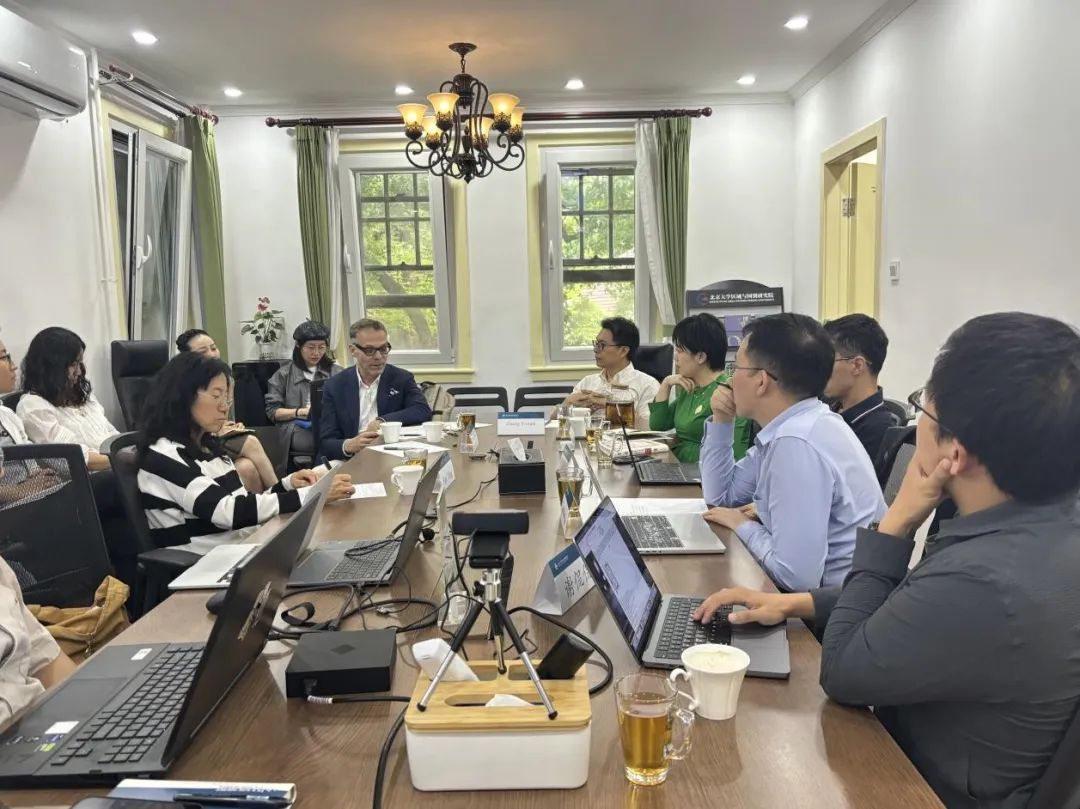
On May 1, the 23rd lecture in the “Adventus Amicorum” series of seminars was hosted by the Institute of Area Studies, Peking University (PKUIAS). The keynote speaker, Teemu Ruskola, a professor of Law and professor of East Asian Languages and Civilizations at Penn Carey Law School, University of Pennsylvania, shared his thoughts on the topic, “New Reflections on Legal Orientalism: Area Studies in the Age of Globalization.” The lecture was moderated by Zhang Yongle, deputy director of PKUIAS. Other participants included Lai Huaxia, assistant professor at the School of International Studies, PKU; Fan Ying, professor at the School of International Economics, China Foreign Affairs University; Wu Xunxiang, assistant professor at the Law School, PKU; Cao Wenjiao, lecturer at the Department of International Law, China Foreign Affairs University; and Xie Kankan, assistant professor of the School of Foreign Languages, PKU.
Prof. Teemu Ruskola first reviewed the overall research plan of his book Legal Orientalism: China, the United States, and Modern Law, starting from his experience of being questioned whether Chinese law exists within his research field. He criticized the Western academic view on Chinese lawlessness, and reflected on and critiqued the epistemological foundation of Western academic legal Orientalism.
The first half of Legal Orientalism directly responds to the notion of Chinese lawlessness, particularly by examining Chinese kinship, pointing out that Chinese law, contrary to many assumptions, fulfils functions similar to Western law in many aspects. Subsequently, Prof. Ruskola discussed the substantive impact of legal Orientalism as a material practice on both international and domestic legal institutions. Building upon this, his recent reflections showed that international law should be analyzed as transnational politics and culture rather than as a simple system of rules. Finally, Ruskola elucidated how the basic concepts of international law have become prevalent globally. Drawing on philosopher Heidegger’s concept of “Weltbild” and sociologist Timothy Mitchell’s metaphor of “The World as Exhibition”, Ruskola explored the relationship between power hierarchies and the production of worldviews, emphasizing comparative international law as an approach of this production process.
Prof. Ruskola proposed the research approach of comparative international law, which does not focus on comparing how different regions and countries accept and respond to European international law, but rather delves into the international order and norms of international interaction within each region itself. He analyzed the interactions between sixteenth-century Jesuit missionaries and the Ming Dynasty, as well as the experience of the Macartney embassy’s audience with the Qianlong emperor, interpreting them as encounters between different regional systems of international law and European international law.
Prof. Ruskola pointed out the need for a critical reflection on the post-World War II American area studies paradigm, which assumes the American production of universal standards, while research on specific regions merely provides particular materials. The study of Chinese law in the US exemplifies this epistemology. Therefore, we should transcend this epistemology and genuinely understand issues from a global and comparative perspective, he said.
Following Prof. Ruskola’s lecture, the participating scholars had a lively discussion on the problems raised in the lecture content. Zhang Yongle summarized the seminar, engaging in an in-depth exploration of interactions among different regional politics and cultures worldwide and the relationship between particular orders and universal knowledge. Lai Huaxia discussed the integration of naturalism and positivism in international law research, as well as the historical relationship between China and international law. Fan Ying shared insights from her personal experiences, examining China’s contributions to international law in the context of free trade agreements. Wu Xunxiang explored Ruskola’s comparison of Chinese family law and European corporation law. Cao Wenjiao initiated a discussion from the perspectives of the universality and particularity of law, and further contemplated how Chinese legal scholars should engage in the construction of legal universality to strive for genuine equality in legal status. Xie Kankan, delved into a discussion of concepts such as time, century, and the analytical structure of Oriental studies, exploring the encounters between China and the West in other regions.


